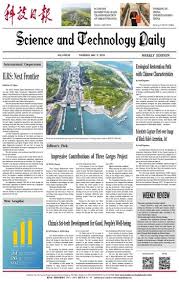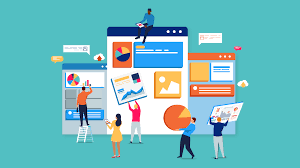The Fascinating World of Economics
Economics is a captivating field that delves into the intricate workings of how societies allocate resources to meet their needs and desires. It is a discipline that not only shapes government policies and business decisions but also influences our everyday lives in profound ways.
The Basics of Economics
At its core, economics is concerned with the production, distribution, and consumption of goods and services. It explores how individuals, businesses, and governments make choices to allocate scarce resources efficiently. From the study of supply and demand to the analysis of market structures, economics provides a framework for understanding the complexities of modern economies.
The Role of Economics in Society
Economics plays a crucial role in shaping society by influencing various aspects such as employment rates, inflation, income distribution, and international trade. Economists use models and theories to predict economic trends, assess risks, and propose solutions to address economic challenges.
The Impact of Globalisation
In today’s interconnected world, globalisation has significantly transformed economic landscapes. The flow of goods, services, capital, and information across borders has created both opportunities and challenges for economies worldwide. Understanding the principles of economics is essential for navigating the complexities of global markets.
The Future of Economics
As technology continues to advance rapidly, economics is evolving to incorporate new concepts such as digital currencies, artificial intelligence, and sustainable development. The field is adapting to meet the demands of a changing world while addressing pressing issues such as climate change, income inequality, and technological disruption.
In Conclusion
Economics offers a fascinating lens through which we can analyse human behaviour, societal trends, and economic systems. By studying economics, we gain valuable insights into how resources are allocated, wealth is created or distributed, and policies are formulated to promote prosperity for all members of society.
Understanding Economics: Frequently Asked Questions and Their Answers
- What do you study in economics?
- Is economics a good degree?
- What do I study in economics?
- What is a simple definition of economics?
- What are the 4 studies of economics?
- What is the best economics definition?
- What is a simple definition of economic?
- What is an economics job?
What do you study in economics?
In economics, the focus of study revolves around understanding how individuals, businesses, and governments make decisions regarding the allocation of scarce resources. This includes analysing factors such as supply and demand, market structures, pricing mechanisms, and the impact of policies on economic outcomes. Economists explore various phenomena like inflation, unemployment, economic growth, international trade, and income distribution to gain insights into how economies function and evolve over time. By studying economics, individuals acquire a deeper understanding of the complexities that drive our global economy and influence societal well-being.
Is economics a good degree?
The question of whether economics is a good degree is a common one among students considering their academic path. Pursuing a degree in economics can offer a range of benefits, including developing analytical and critical thinking skills, understanding complex economic systems, and gaining insights into how individuals and societies make decisions about resource allocation. Economics graduates are often sought after in various industries, including finance, government, consulting, and academia. However, the value of an economics degree ultimately depends on individual interests, career goals, and the opportunities available in the job market. With its versatility and relevance to real-world issues, studying economics can provide a solid foundation for a diverse range of career paths.
What do I study in economics?
In economics, the study encompasses a wide range of subjects that delve into the principles governing how societies allocate resources to achieve their goals. Students of economics explore topics such as supply and demand dynamics, market structures, consumer behaviour, production costs, economic policies, and global trade patterns. By studying economics, individuals gain a deeper understanding of how decisions are made at individual, business, and governmental levels to address issues like scarcity, inflation, unemployment, income distribution, and economic growth. The field of economics equips students with analytical tools to assess complex economic phenomena and develop strategies for addressing real-world challenges in both local and global contexts.
What is a simple definition of economics?
Economics can be succinctly defined as the study of how individuals, businesses, and societies make choices to allocate limited resources in order to satisfy their unlimited wants and needs. It encompasses the analysis of production, distribution, and consumption of goods and services within an economy. Essentially, economics seeks to understand how scarce resources are utilised efficiently to maximise overall welfare and prosperity.
What are the 4 studies of economics?
In the field of economics, the discipline is often categorised into four main studies that provide a comprehensive understanding of how economies function. These studies include microeconomics, which focuses on individual economic agents such as consumers and firms, and macroeconomics, which examines the broader aspects of an economy such as inflation, unemployment, and economic growth. Additionally, econometrics utilises statistical methods to analyse economic data and make forecasts, while international economics explores the interactions between different countries in terms of trade, finance, and policies. Each of these studies plays a crucial role in shaping economic theories and policies to address real-world challenges and opportunities.
What is the best economics definition?
The quest for the best definition of economics is a common inquiry among those exploring the field. While opinions may vary, a widely accepted definition of economics describes it as the study of how individuals, businesses, and societies allocate scarce resources to meet unlimited wants and needs. This definition encapsulates the fundamental concept of scarcity and choice that underpins economic theory. Economics seeks to understand how resources are distributed, how markets function, and how policies impact economic outcomes, making it a dynamic and multifaceted discipline with implications that extend far beyond monetary transactions.
What is a simple definition of economic?
Economics can be defined as the study of how individuals, businesses, and societies make choices to allocate limited resources to satisfy their unlimited wants and needs. It examines the production, distribution, and consumption of goods and services within an economy, aiming to understand how these activities impact decision-making processes and overall well-being. In essence, economics provides a framework for analysing the ways in which scarce resources are managed to achieve optimal outcomes in a world of competing demands.
What is an economics job?
An economics job encompasses a wide range of roles that involve the application of economic principles to various sectors such as finance, government, academia, and business. Professionals in economics jobs analyse data, conduct research, and provide insights on issues related to production, consumption, and distribution of goods and services. They may work as economists, financial analysts, policy advisors, or researchers, contributing to decision-making processes that shape economic policies, investments, and strategic planning. Economics jobs require strong analytical skills, critical thinking abilities, and a deep understanding of market dynamics to address complex economic challenges and drive sustainable growth.




